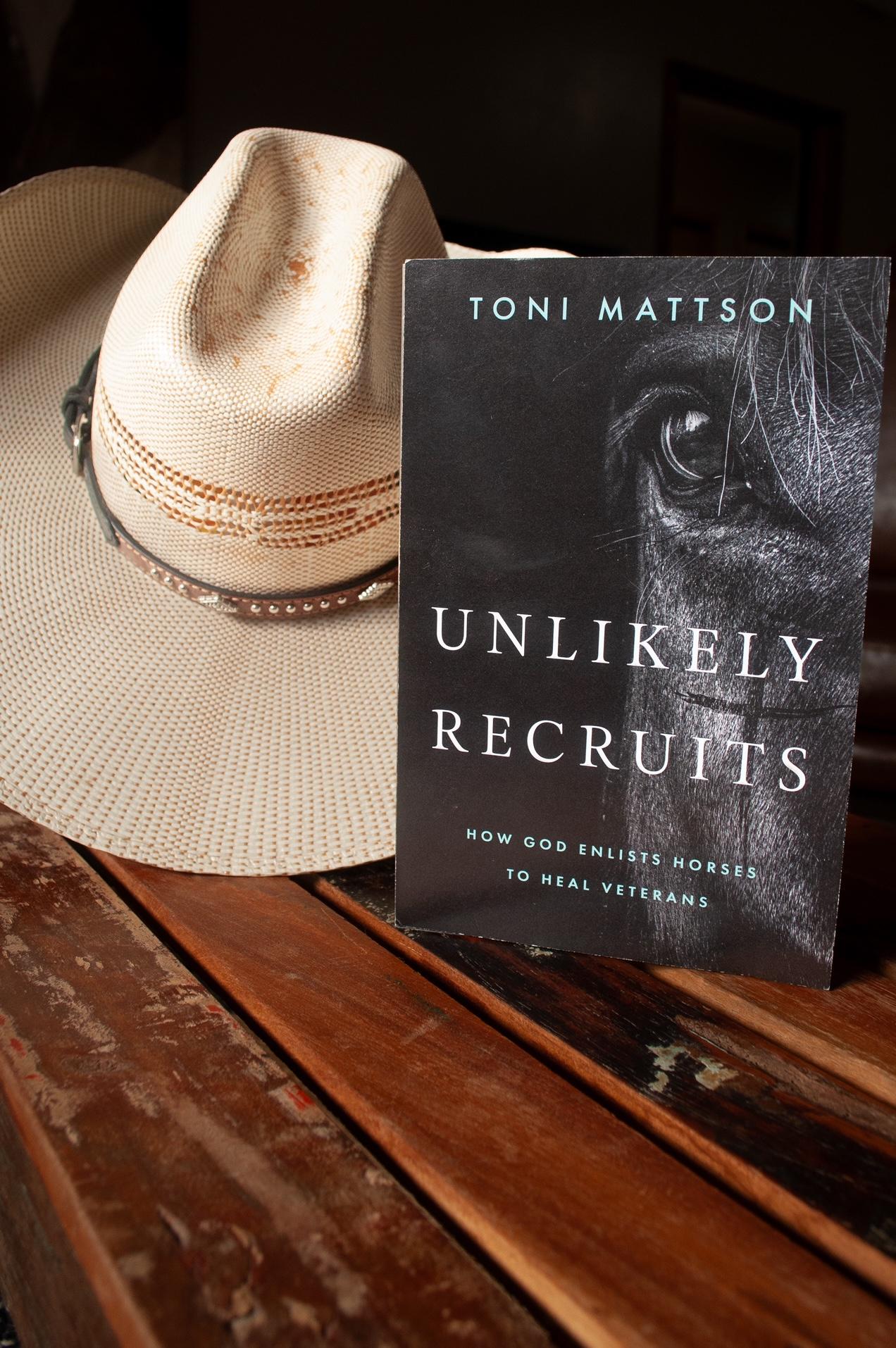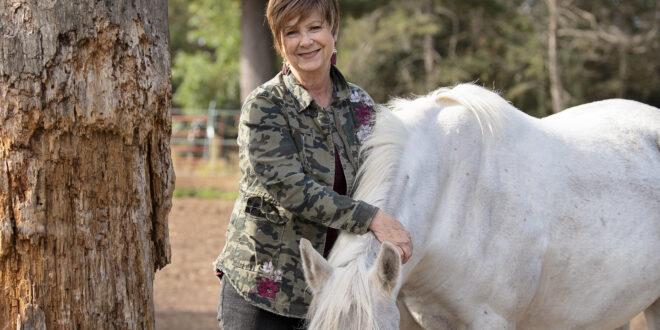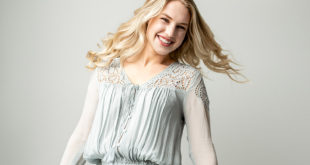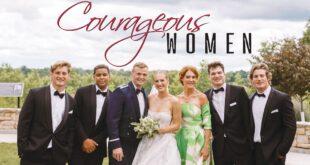By Katie McKy
Toni Mattson, born and raised in Medford, WI, loved horses from the get-go. “I grew up horse-crazy, and at the age of five, our parents leased ponies for my sisters and me,” Mattson said. “My little mare was named Heidi. It was love at first sight, and she’s what cemented my love for horses.”
Mattson and her husband, Bill, bought Pinewood Stables in 2002, 67 acres south of Eau Claire, and renamed it Trinity Equestrian Center, a proclamation of faith. The property looks a lot like a Kentucky ranch, with its white fences. It has a 17-stall heated barn, a heated indoor arena, a lounge with full kitchen, a restroom, and two offices.
“The South facility is the hub for our Youth Development with several activity centers, offices, and a large kitchen and life skills center,” Mattson explained. “We also have two outdoor arenas and a covered round pen.”
Mattson has long understood the power of a horse to carry a human beyond a saddle. “As a kid, I knew what a horse could do for the heart of a human,” she said. “There was so much more they could give besides a good ride.”
So, Mattson applied that power to serve an underserved population. “I really feel that God led me to explore the therapeutic side of why He created horses, so I traveled thousands of miles to become a dual Certified Equine Specialist, with advanced training in working with veterans with PTSD,” she said.
In 2009, Mattson launched the Veteran Wellness Program at Trinity. “We have had the privilege of working with some of the most courageous veterans who ever served our country,” she said. The work, which serves both veterans and their families, is donor, grant, and foundation-funded.
Equine Assisted Therapy (EAT) for veterans isn’t about riding. “In fact, the work is done on the ground,” Mattson said. Grooming and caring for the horses is a fundamental aspect as veterans learn to brush, clean hooves, and more.
“These tasks demand patience and consistency, fostering a sense of responsibility and empathy,” Mattson explained. “The act of taking care of another living being can be incredibly therapeutic, as it encourages veterans to establish trust and a deeper connection with the horses.” Leading exercises are another essential element.
“Veterans are guided through activities that require them to lead the horse through various obstacles or tasks. This instills leadership qualities, assertiveness, and effective communication,” Mattson said. “Horses, being highly attuned to human emotions, respond to the veterans’ energy and body language, providing immediate feedback on their emotional state.”
Equine Assisted Therapy activities involve establishing boundaries, practicing assertiveness, and developing problem-solving skills, all of which translate into improved self-confidence and emotional regulation.
“Incorporating the horses into therapy sessions offers a unique and non-judgmental mirror for veterans to examine their emotions and behaviors,” Mattson said. “It encourages them to identify and address issues related to trust, fear, and control – common challenges faced by those dealing with trauma or emotional distress. It leverages the sensitive nature of horses to help veterans build trust, improve communication, and gain valuable insights into their emotions, ultimately facilitating their healing and personal growth.”
Mattson has seen horses provide profound purpose. “They had such purpose when they were in the military: pursuing their mission, supporting their comrades, doing and being the best they could be. But when they were discharged or retired, there was no comparison in the civilian world that satisfied that need… that intensity and high degree of purpose,” Mattson said. “We all need purpose.”
Mattson remembered the purpose that horses gave her throughout her life. “I had an incredible and uncommon relationship with my horse, and it shaped me as a kid, young adult, into my middle age, and still today,” she said. “It’s invaluable, priceless, and truly life-changing.”
Mattson believes that the embedded qualities of horses facilitate recovery. “Horses are non-judgmental; what you see is what you get,” she said. “They don’t have a hidden agenda. The saying is, ‘horses don’t lie.’ They have reliable traits of being trustworthy and transparent.”
These are traits valued by a vet struggling with PTSD, depression, anxiety, night terrors, thoughts of suicide and more. “One of the most depleted qualities for vets upon return is trust — they have none, not even for their families and friends, or for anyone hasn’t lived what they’ve lived. But a horse asks for nothing but a connection…a relationship,” Mattson said. “They’ll work hard at it, too. They won’t let the vet get away with being deceptive, because horses really don’t like it when our ‘outside doesn’t match our insides.’ They don’t like discrepancies and work hard to help the vet resolve the internal battles.”
The steadfastness of horses can be a difference maker for vets. “Everyone has a story they struggle with, but for a vet, it’s the one that haunts them at night and chases them all day. It’s brutal, relentless, and exhausting,” Mattson said. “And they need to find some safe place, some person, place, thing, creature that gives them a feeling of okayness, worth, peace…something that calms the demons, even if it’s just for the moment.”
Through vet/horse relationships, Mattson has seen one vet’s dull eyes brighten again with life’s light. She has seen another vet, who self-medicated to dull the pain of an ankle shattered by an AK-47 round and a military career shattered in the same moment, partner with a horse with its own damaged ankle. A large animal veterinarian was brought in to further the horse’s healing and that doctor, impressed by the vet’s insight into the horse, offered him a job. That vet ended his self-medicating.

These two anecdotes are told in greater detail, along with 18 other stories of recovery facilitated by horse/vet relationships, in Mattson’s newly-released book Unlikely Recruits – How God Enlists Horses to Heal Veterans.
In 2019, Mattson was the keynote speaker at a ladies Christmas tea in a church in Marshfield, Wisconsin. A Christian book agent was in the crowd and approached Mattson afterward, stating that she believed Mattson’s work deserved wider recognition. That agent wasn’t the only one who believed this, as the Veteran Wellness Program at Trinity has been awarded and heralded by two Wisconsin Governors (Evers and Walker), two WDVA Secretaries (Sec. Kolar and Sec. Bond), many Wisconsin legislators, many professional organizations (PATH, Intl and EAGALA), and is the home of the annual WDVA Women’s Veteran Retreat for eight years running.
“We’ve become known as the Midwest’s leader in EAT treating veterans with PTSD,” Mattson said. After decades of working with horses and serving those who’ve served, Mattson can still be surprised by the horses at the center of it all.
“I love horses, but sometimes they can be bit unpredictable. That’s a double-edged sword,” she said. “We rely on them to BE A HORSE because that’s what makes this work so effective, but sometimes it can feel like you’re dancing with a partner who has their own rhythm. However, I love the spontaneity of these magnificent creatures, which keeps every session fresh and exciting, offering unexpected breakthroughs and connections.”
Mattson has had a front row seat to those breakthroughs and connections. “I’ve gained a deep understanding of the resilience of the human spirit,” she said. “Seeing veterans struggling with PTSD and witnessing their progress through therapy is nothing short of inspiring. It’s taught me that healing is a journey, and patience is key.” And, when it comes to patience, no one does it better than a horse.
“Horses are the best teachers in the patience department,” Mattson said. “They’re such intuitive creatures; they can sense emotions and mirror them, which makes therapy sessions incredibly powerful. Horses can bring out emotions and challenges that words alone can’t.”
 Chippewa Valley 5ive for Women The Chippewa Valley’s Premier Magazine for Women!
Chippewa Valley 5ive for Women The Chippewa Valley’s Premier Magazine for Women!






